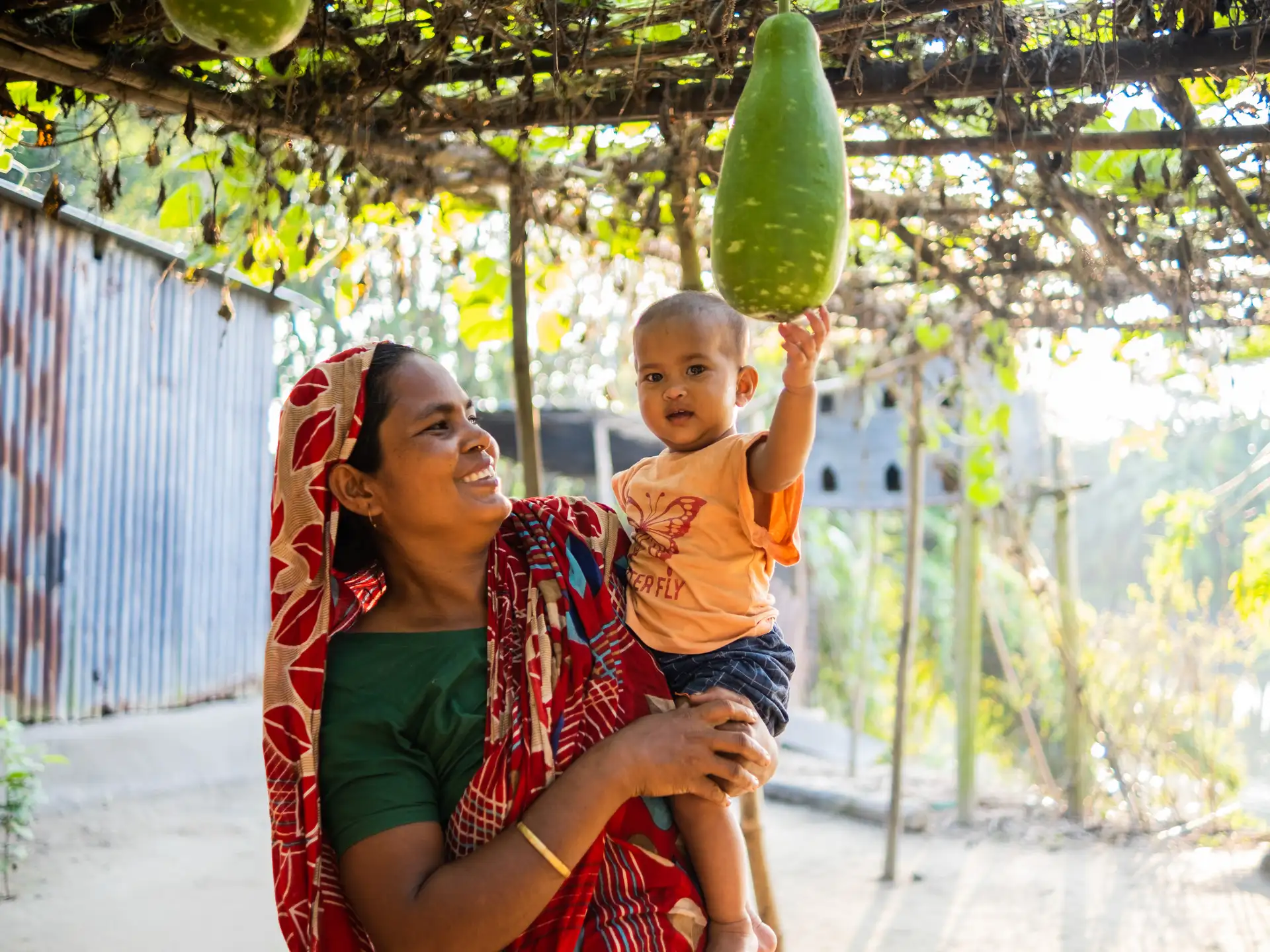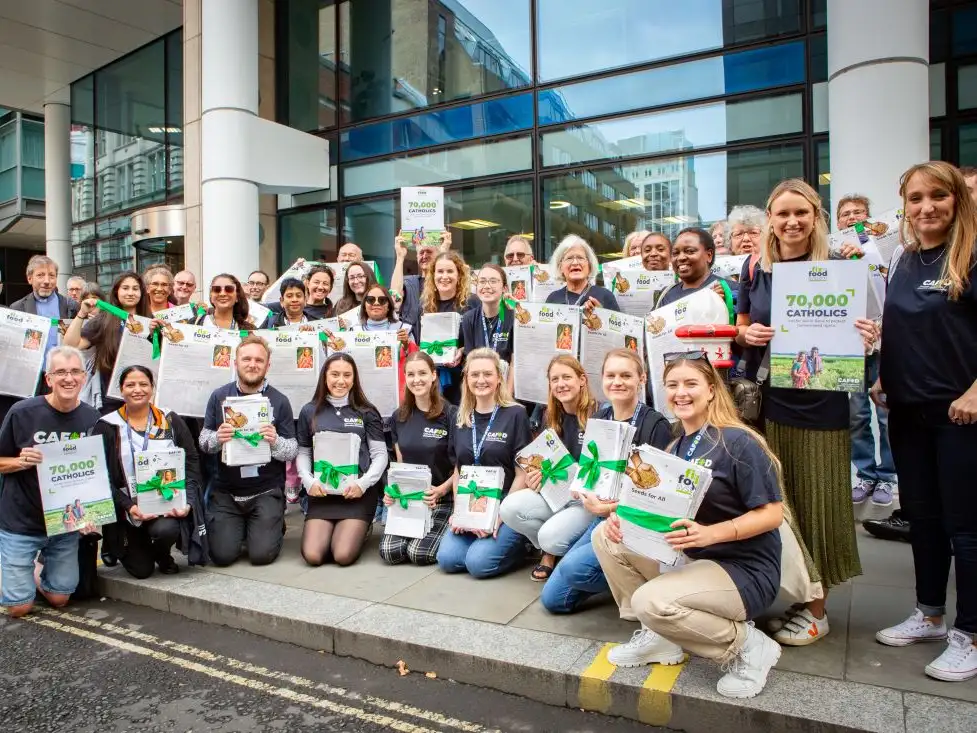

The World Bank turns 80 this year. Will you join us in sending a birthday wish?
Last year CAFOD called on the World Bank to defend the rights of small-holder farmers.
Now, as the World Bank approaches its 80th birthday, our policy experts reflect on why it has failed in its mission to end poverty.
Over the past eight decades, the World Bank has issued many billions of dollars in loans to countries in need, making it the largest source of financial assistance to countries across the Global South.
Despite this spending, the World Bank’s policies have often proved problematic. From imposing harsh conditions on loans to low-income countries, to making it harder for small-scale farmers to access seeds, the World Bank’s actions have often been detrimental to some of the world’s poorest communities.
That’s why CAFOD supporters will be sending birthday messages to the World Bank to call on them to change direction to ensure a more just world in line with church teachings on solidarity.

Why was the World Bank founded?
Following the destruction of World War Two, the World Bank was founded to support Europe to rebuild after the Second World War, end extreme poverty and prevent future world wars.
At the Bretton Woods conference in July 1944, 730 representatives from 44 allied nations made key agreements aimed at fostering economic cooperation. It was at this same meeting that the World Bank’s sister agency, the International Monetary Fund (IMF), was formed.
After initially providing loans to a post-war Europe, throughout the 1970s the World Bank and IMF shifted focus to low- and middle-income countries. In the decades following this pivot, dozens of the world’s poorest countries were forced to adhere to “structural adjustment” policies in exchange for loans.
These policies often required countries to reduce government spending, remove trade barriers and expose their emerging industries to competition from highly developed industries and corporations based in the advanced capitalist countries, with which they could not compete. Policies such as these have been widely criticised for causing – in some cases catastrophic – social and economic harm to developing countries. Despite the World Bank’s acknowledgement of some of the failings of structural adjustment, similar policies remain in place to this day.


CAFOD campaigners took Salina's message right to the World Bank in London
How the World Bank's policies are harming farmers
CAFOD’s recent research into the World Bank’s agricultural policies found they were perpetuating poverty and the climate crisis through its support for large agribusinesses.
Through conditionality on funding, the World Bank often forces countries to impose new rules and laws on seeds, which mean that farmers are pushed into buying commercial seeds and fertilisers, instead of using their own saved seeds.
The World Bank then measures the success of their programmes by measuring farmers’ greater participation in the private sector and increased access to hybrid seeds and fertilisers. As a result, large-scale agribusiness companies have been the main beneficiaries of the World Bank’s approach to seeds.
While big agri-businesses are profiting from increased sales, the small-scale farmers, who are vital to producing the world’s food, are often sidelined. The World Bank is failing to measure its policies’ impact on poverty reduction and overlooks the role of farmers’ seed systems as a crucial part of building a sustainable global food system.

See our birthday message to the World Bank
The World Bank is 80 this year. But with 2.4 billion people having no regular access to food, we have shared one single birthday wish.

